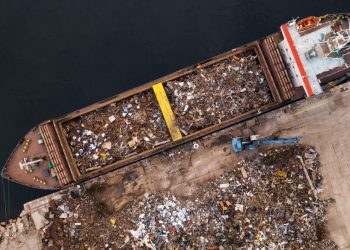IBIA announced that it supports voluntary measures to protect Arctic from black carbon emissions.
Namely, reducing the impact on the Arctic of Black Carbon emissions from international shipping, including a resolution on voluntary measures, are due to be discussed at MEPC 77.
Submissions on the subject, including one submitted by IPIECA and IBIA to MEPC 75, and further submission to MEPC 76 were due to be considered at MEPC 76 earlier this year, but that meeting ran out of time.
MEPC 77 will consider the deliberations of the Sub-Committee on Pollution Prevention and Response (PPR 8) on the subject earlier this year, and the terms of reference for the PPR’s future work on reduction of the impact on the Arctic of Black Carbon emissions from international shipping.
IBIA has participated actively in these discussions and supports promoting voluntary measures to reduce black carbon emissions in the Artic
Discussions have been raging at PPR regarding the potential impact of fuel quality in causing increased emissions of black carbon.
IBIA’s position can be summarised as follows:
#1 The suggestion that VLSFO is causing an increase in black carbon emissions because they are more aromatic than HSFOs were is based on flawed assumptions. Fuel testing data indicates very, very strongly that VLSFO is typically less aromatic and more paraffinic than HSFO and therefore reduces BC emissions compared to HSFO.
#2 Fuel type has some impact on BC emissions with LNG and methanol in particular being effective at reducing all types of PMs, including BC. The difference in propensity to produce BC between HSFO, VLSFO and MGO is less pronounced however with engine type and engine load being much more significant factors.
#4 IBIA has publicly indicated support for voluntary measures to reduce black carbon emissions by ships operating in or near the Arctic, including a voluntary shift to MGO which would likely have some benefits.
IBIA and IPIECA also highlighted the most effective voluntary measures in PPR as follows:
- Avoid ships with older mechanical injection engines;
- Employ ships that can use LNG or similarly clean-burning fuels;
- Voluntary switch to distillate fuels, especially on ships using 4-stroke engines.
Now, a new submission submitted by 11 member states, is proposing a draft MEPC resolution for voluntary use of cleaner fuels by ships operating in or near the Arctic.
The resolution:
Urges Member States and ship operators to voluntarily use distillate of low aromaticity or other cleaner alternative fuels or methods of propulsion that have been shown to reduce Black Carbon emissions from ships when operating in or near the Arctic
IBIA said that it supports the resolution, but added that it sees one problem with the text, which is the reference to ‘low aromaticity’:
This is not really well understood in the market, and there is no test method readily available to check if the fuel used has low/high aromaticity, neither for distillates nor residuals
Instead, IBIA suggests to drop the reference to aromaticity, and simply say:
Urges Member States and ship operators to voluntarily use distillates of low aromaticity or other cleaner alternative fuels or methods of propulsion that have been shown to reduce Black Carbon emissions from ships when operating in or near the Arctic
What is more, Clean Arctic Alliance has also called on the IMO to protect the Arctic by implementing a rapid decrease in emissions of black carbon from shipping.






























































